Ludwig van Beethoven has gone down in classical music history as a great, defiant, wild-haired composer genius. However, being a genius doesn’t always pay the bills. So throughout his life, Beethoven often took on piano students to supplement his income…at least until his increasing deafness made that particular income stream less and less tenable.
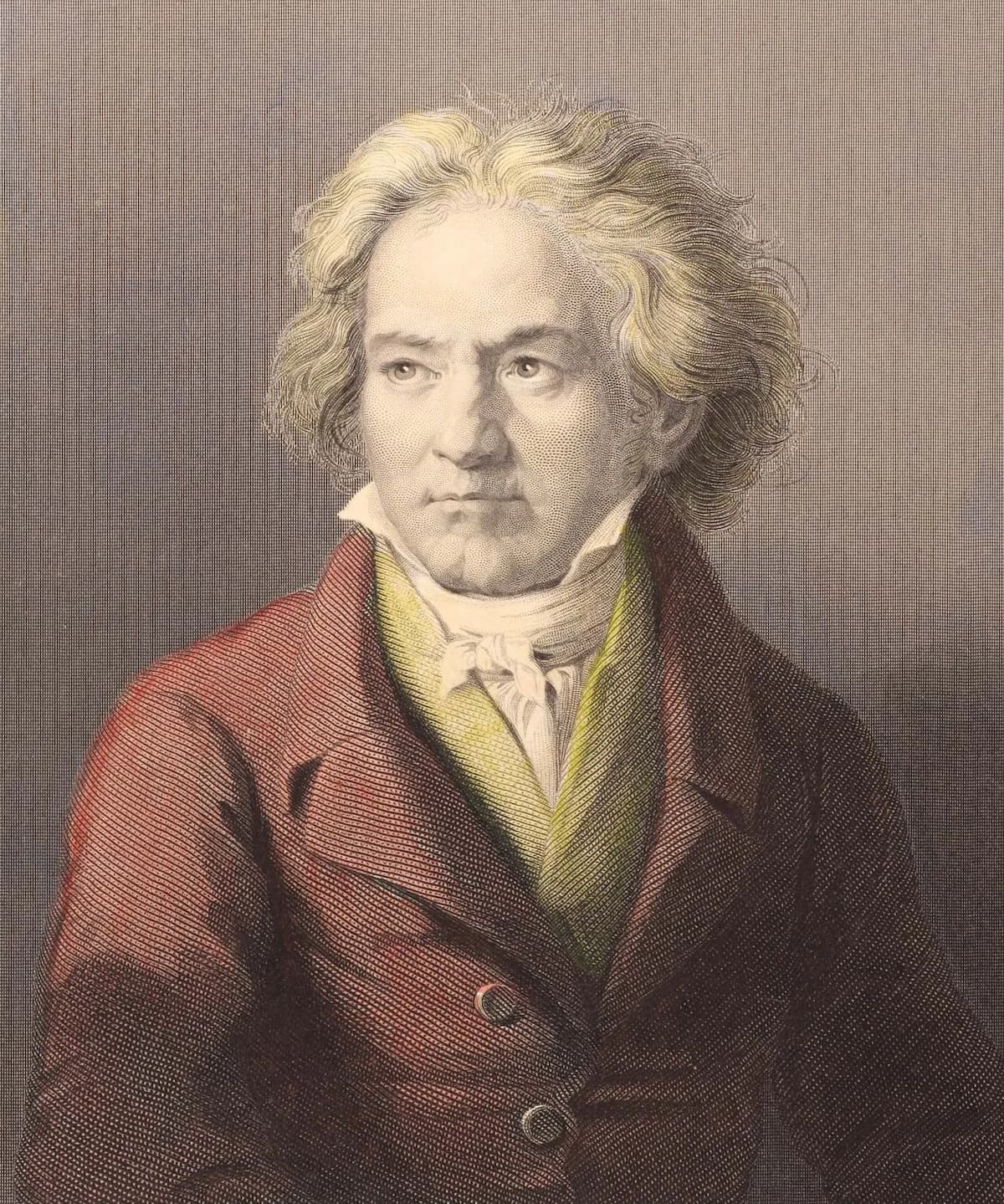
Ludwig van Beeethoven
Today we’re looking at four of the most interesting people to have studied with the great composer:
Carl Czerny
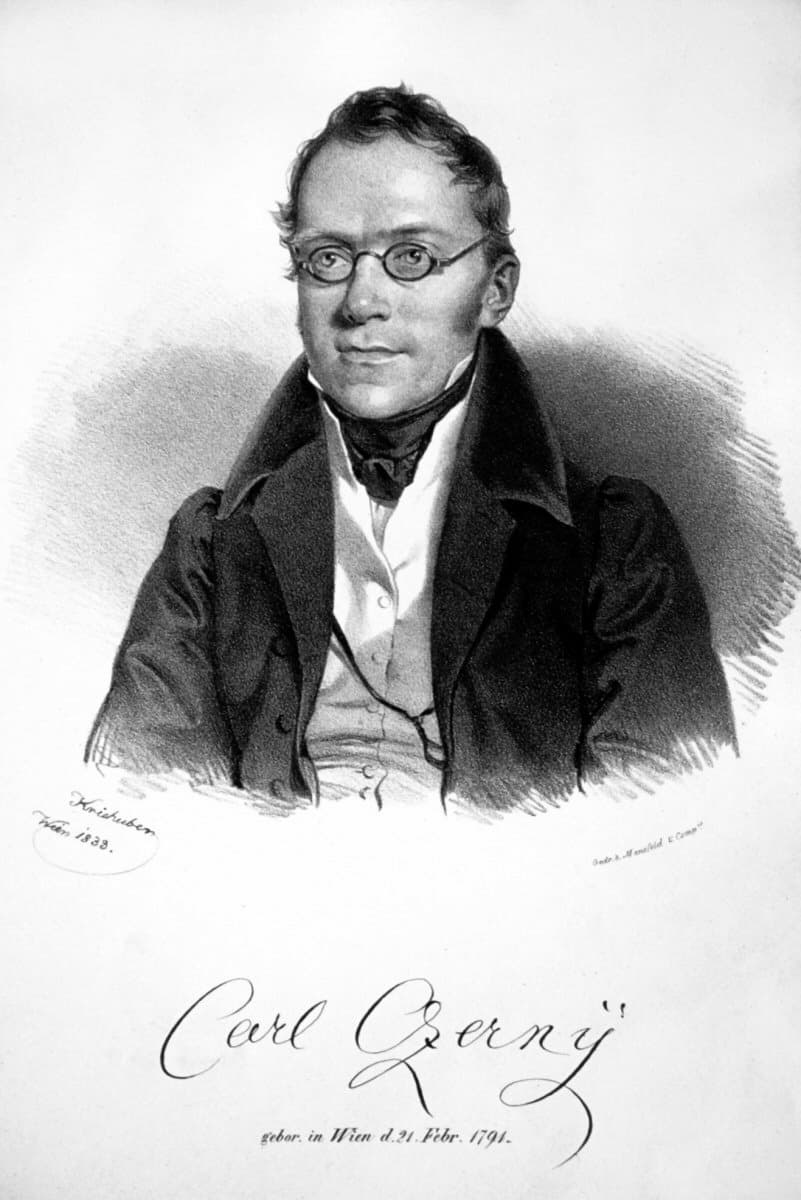
Carl Czerny
Carl Czerny was born in Vienna in 1791 and started playing piano at the age of three. At the age of nine, he made his concert debut in a performance of Mozart’s 24th piano concerto.
The following year, Czerny met Beethoven at Beethoven’s house. Czerny made the ominous observation that the master “had cotton which seemed to have been steeped in a yellowish ointment, in his ears.” Czerny played Beethoven the Pathétique Sonata. Beethoven was impressed and signed the boy on as a student.
Czerny studied with Beethoven for three extremely formative years. He came to know Beethoven’s works so well that when he would go to play for the great music lover Prince Lichnowsky, the prince would call out an opus number and Czerny would immediately play it from memory, like a nineteenth-century version of Spotify. Fittingly, Czerny gave the premiere of Beethoven’s most famous piano concerto, the Emperor.
Over the course of his career, Czerny became one of the most influential piano teachers of his generation, teaching future masters like Thalberg, Leschetizky, and Liszt.
The Best of Carl Czerny – Piano Etudes
Dorothea von Ertmann
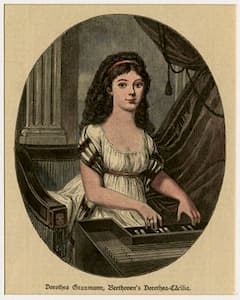
Dorothea Graumann (von Ertmann)
Dorothea Graumann was born in 1781 and married Stephan von Ertmann, an Austrian infantry officer when she was still a teenager. Soon after, the couple moved to Vienna and von Ertmann began studying with Beethoven, who took a liking to her.
Their professional partnership lasted for years, and Beethoven grew to respect her artistry deeply. In 1809, she actually played the premiere of Beethoven’s third cello sonata, and in 1816, he dedicated his twenty-eighth piano sonata to her. She became one of the most renowned Beethoven interpreters of her generation.
They were also close friends. When von Ertmann’s toddler son died in 1804, Beethoven invited von Ertmann to a private improvisation session so that they could grieve together. “We will now talk to each other in tones,” he famously told her.
Emil Gilels Plays Beethoven’s Piano Sonata No. 28 in A major, Op. 101
Ferdinand Ries
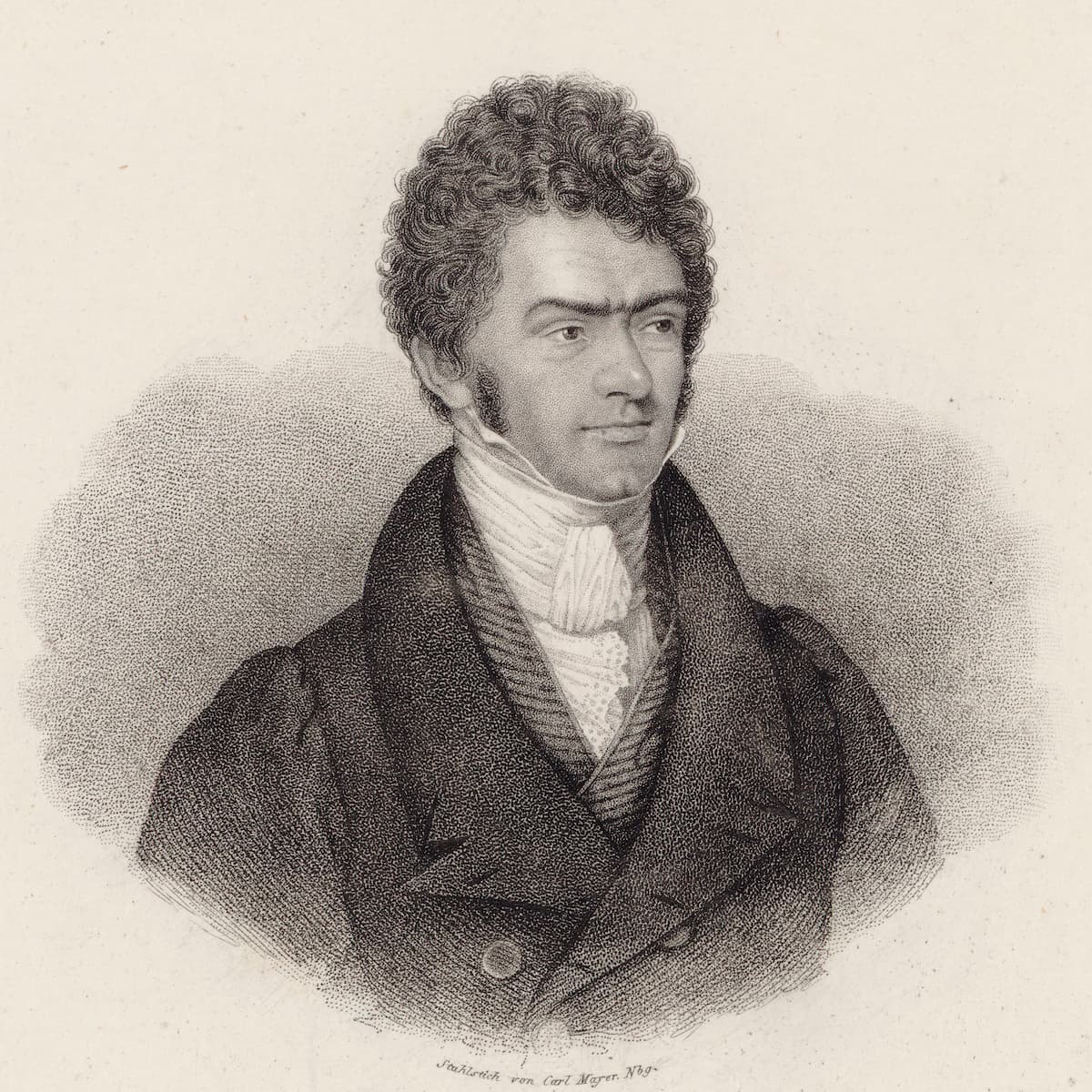
Ferdinand Ries
Ferdinand Ries was born to a musical family in 1784 in Bonn: the same German city that Beethoven had been born in fourteen years earlier. In 1803 he came to Vienna, hoping to make his name. Beethoven took him on as a student, in part because he had studied with Ries’s father.
Ries soon became more than a student; he became an indispensable assistant figure, writing publishers, copying manuscripts, and the like. He also became an advocate for Beethoven’s work, playing the third piano concerto to rave reviews, and eventually helping Beethoven arrange the premieres of the Fifth and Sixth Symphonies. Despite this, he’s probably most famous in classical music history today as being the person who angered Beethoven at a pre-premiere rehearsal of the Third Symphony, when he questioned whether a horn player had come in too early toward the beginning of the piece.
Inspired by his teacher’s example, he became a hugely prolific composer in his own right, although we don’t hear much of his music today.
Ferdinand Ries: Piano Sonata in F-Sharp Minor, Op. 26, “L’infortunee” (Susan Kagan, piano)
Julie “Giulietta” Guicciardi
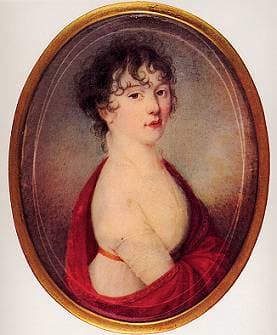
Julie “Giulietta” Guicciardi
Julie Guicciardi was born in 1784 in Austrian Poland. She was a countess and a favorite in high society when the family arrived in Vienna in 1800. Not long afterward, she began to take piano lessons from her cousins’ piano teacher: Beethoven himself!
And Beethoven adored her. Historians believe he is referring to Guicciardi in this letter he wrote to a friend in 1801, as he was coming to terms with his hearing troubles:
“My life is once more a little more pleasant, I’m out and about again, among people – you can hardly believe how desolate, how sad my life has been since these last two years; this change was caused by a sweet, enchanting girl, who loves me and whom I love. After two years, I am again enjoying some moments of bliss, and it is the first time that – I feel that marriage could make me happy, but unfortunately, she is not of my station – and now – I certainly could not marry now.”
At the time, Beethoven was 31 and Guicciardi was seventeen. In 1802, he dedicated his fourteenth piano sonata to the teenager. We know it best as the Moonlight Sonata today.
When she was nineteen, Guicciardi married Count Wenzel Robert von Gallenberg, an amateur composer, and it appears that the two drifted apart. Frustratingly little of a reliable historical record remains about what she took away from her piano studies with Beethoven, or what her relationship with him was like.
For more of the best in classical music, sign up for our E-Newsletter

Very intuitive to compare Czerny to Spotify
Very interesting article. I knew the line Beethoven Czerny Liszt but had forgotten
Dr Louise Earhart